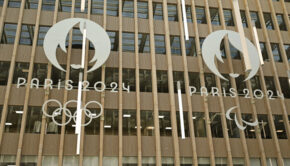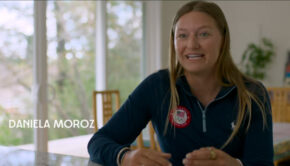Glory days of Canadian Olympic sailing
Published on February 28th, 2023
When the Olympic flame route for the 1976 Olympics traveled from Montreal to Kingston, it went through 14-year-old Mark Lammens’ sailing sessions in Brockville on the back of a rowing shell. Going with his family to watch the 1976 Olympics remains a strong memory for the longtime Canadian coach as he shares in this report about the glory days of Canadian sailing:
The summer of 1976 was an exciting time in Canada. Montreal hosted the Olympics and built a spectacular stadium for the opening ceremonies and track and field. Also built were a cycling velodrome beside the stadium, a rowing basin at Notre Dame Island, and a sailing harbor in Kingston (Portsmouth Olympic Harbor).
At the time, Race Management was the responsibility of the host country. Racing circles were run by Royal Canadian Yacht Club, Royal St Lawrence Yacht Club, and the Britannia Yacht Club. And the Canadian Sailing Team was impressive. Of the six events on the Olympic Program, five of the Canadian representatives finished in the top eight in their events.
World Champions Hans Fogh (Royal Canadian YC) and Evert Bastett (Royal St. Lawrence YC) finished 4th overall in the Flying Dutchman. There were also race wins by Sandy Riley (Gimli YC) in the Finn and Glenn Dexter, Sandy McMillian, and Andres Josenhans (Bedford Basin YC) in the Soling. In the Tempest class, Allan Libel and his cousin Lorne Libel (National YC) finished 3rd in a race. The 470 class sailors, Colin Park and Jay Crossm(Royal Vancouver YC) finished 3rd and 4th in two races.
After the 1976 Olympics, many of these sailors continued to campaign for Moscow 1980. The Canadian Soling class was already very strong and the addition of Hans Fogh made it even stronger. Between 1977 and 1980, Canada had four Soling teams among the top eight in the World. The Nova Scotia boat of Glenn Dexter, Andreas Josenhans and Sandy McMillan won the World Championships twice and were second in another. Hans Fogh, John Kerr (Royal Canadian YC), and Dennis Towes (Royal Hamilton YC) finished 3rd in a World Championships.
But as National Team coach Steve Tupper reminded everyone, only one boat in each class per country can go to the Olympics.
Evert Bastett joined forces with top youth sailor Terry McLaughlin from the Royal Canadian YC in the Flying Dutchman. They became the Olympic favorites after winning the 1980 Worlds. Other National Team successes leading up to the Olympics include Larry Lemieux (Wabamun Sailing Club) finishing 3rd at the Finn Gold Cup/World Championships and Jerry Roufs and Charles Robitielle (Royal St Lawrence YC) finishing 2nd at the World Championships.
Then in 1979, the unthinkable happened when the Soviet Union attacked Afghanistan in violation of the Olympic truce of no war during the Games. With Moscow hosting the 1980 Olympics, United States President Jimmy Carter initiated a boycott. Sixty other countries followed suit including Canada, Japan, Argentina, Norway, and West Germany.
Other countries took different actions in protest. Spain, Portugal, and New Zealand competed under their nation’s Olympic flag instead of their country flag. Five countries including Denmark, Italy, and Australia competed under the Olympic flag. Some countries boycotted the Opening Ceremonies including Belgium, the Netherlands, France, and Italy.
The sailing teams from Australia and Britain boycotted the Games altogether. However, other sports including the British track and field team decided to send athletes. A Sports Illustrated cover photo of the Olympics with a British track athlete was not well received by other countries.
The different approaches taken by countries created a lot of controversy. The International Olympic Committee (IOC) should have taken a leadership role and cancelled the 1980 Olympics.









 We’ll keep your information safe.
We’ll keep your information safe.